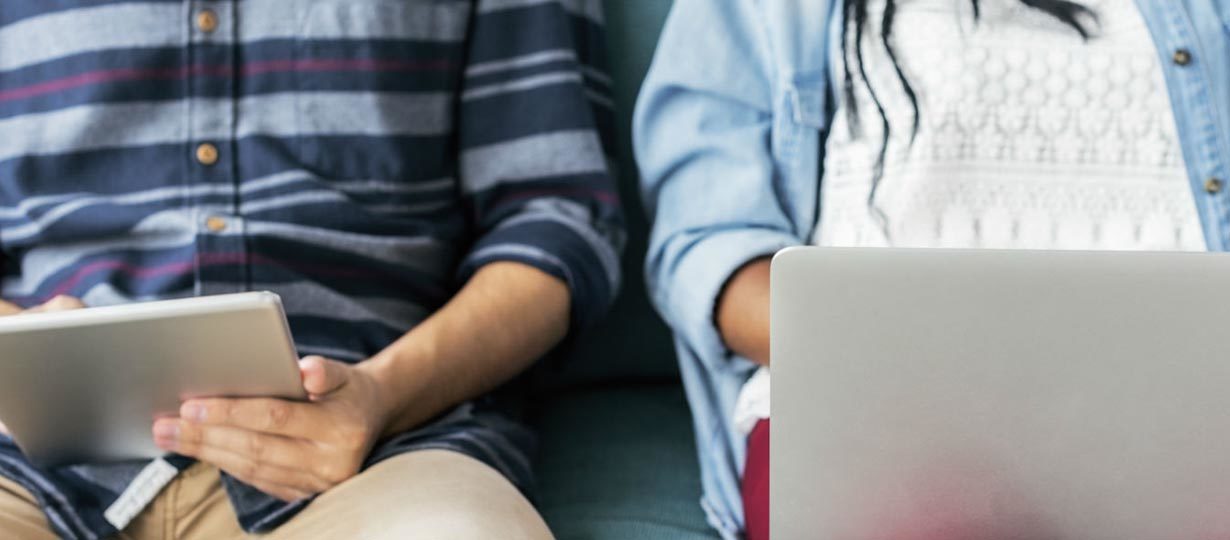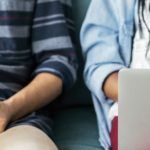News and Stories - - 20 February 2018
Empowering your kids to be safe online

As adults we see the power and potential of the internet to help our kids feel included and connected to the world. But we also understand the risks that come with it. So how can we make the internet a safe, inclusive space for all?
On the back of Safer Internet Day we have spoken to young people and their parents about how they navigate the world online. We’ve seen that the internet is a powerful tool to forge friendships across the globe, learn from the comfort of your phone, drive discussions and change attitudes. We’ve also seen the dangers it can pose for young people, the divisiveness and polarisation it can fuel and the platform it can provide for bullying, sexism and discrimination.
In our own international programs we identify that the internet presents an opportunity to access learning and employment. Our programs recognise that girls and boys have different experiences online and are subject to different online risks, so information and education provided to children needs to be age and gender appropriate. This applies just as well here as it does overseas and is worth taking into account when talking to your own kids.
So how can we help kids form the kind of internet they want to see: one where people can socialise, share, have safe discussions free from abuse and feel included?
- Model offline behaviour online: our young interviewees told us they felt more comfortable having discussions offline than online. Online it seems that opinions are more polarised, in turn driving comments that are more about judgement than understanding. We can certainly learn from our offline experiences. We can talk to our kids about how to treat people online as we would in person, listening respectfully and making an effort to understand differing views and walking away from abusive, inflammatory situations.
- Understand how they use instant media: We teamed up with Facebook and Project Rockit last year to ask students what they want for online safety and how they use these mediums. This is a great starting point to open up a conversation on how young people can make informed decisions about what they share on which mediums while shifting the focus from blaming victims for sharing content to blaming perpetrators for exploiting their privacy – something the young people we spoke to want to see change.
- Talk to boys about respecting women and girls online as well as offline: The internet is a great way to learn more about the perspectives of girls and build stronger relationships through understanding and communicating with each other. Our Don’t Send Me That Pic report highlights that girls feel online sexual harassment and bullying are endemic, and shares their perspective on the change they want to see online and offline.
- Work together to develop guidelines they can follow to stay safe online: We developed a list which we use to help us discuss online safety with young people taking part in our programs that are a handy starting point.
- Help kids find examples of the positive impact the internet can have: from creating change, to building relationships and learning about the experiences of people all over the world, the internet is an incredibly powerful tool for good. Here’s a great example from Plan International’s work in Pakistan:
In Pakistan the internet is providing opportunities for girls to bridge gaps fuelled by gender inequality. It provides better economic and education opportunities and a community of support. Yet in marginalised communities gender discrimination, a lack of confidence, language difficulties, low literacy and a lack of money prevent girls and young women from taking full advantage of technology.
Plan International in Pakistan set up a Safe Internet and School Outreach program with ICT labs so that teachers and girls could be trained on computing, digital learning and online safety.

This not only provides a wealth of opportunities for women and girls facing marginalisation because of their gender, it also means that there is a growing community of young people all over the globe who have the opportunity to share and learn from each other.
It will take a global effort to make the internet a safe, inclusive space for everyone. But our kids are well equipped to help drive it.
We’re bringing together a community that is raising global citizens by sharing knowledge and experiences and empowering young people to reach their full potential. If you’d like to be a part of it, sign up here.


